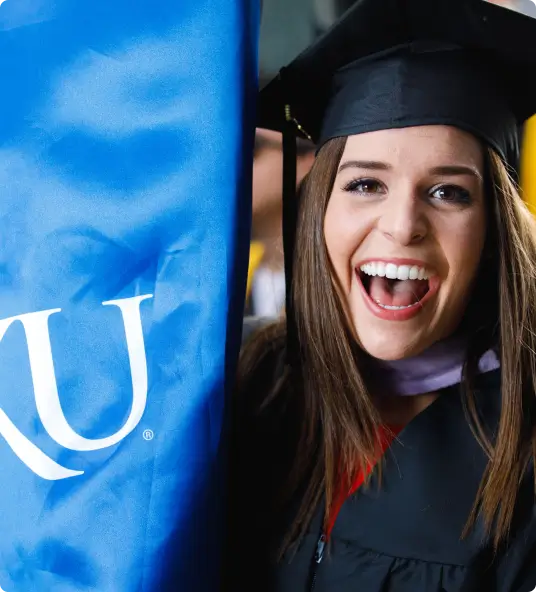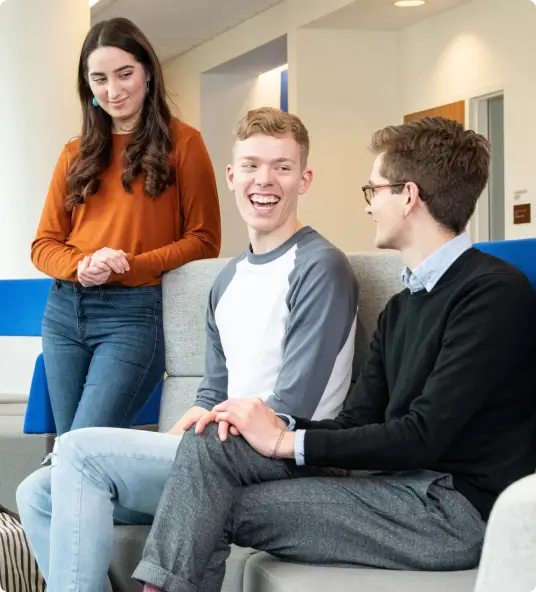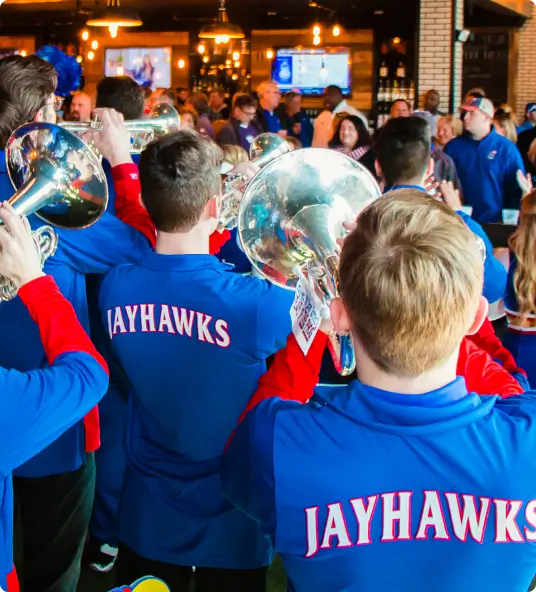Jayhawks in leadership positions are everywhere you look, including through the Jayhawk Career Network. KU Alumni, in partnership with SumnerOne, is highlighting Jayhawk leaders who are models for others in their industries with our “Copy the Leader” program.
What do you do in your work?
I design and implement recruitment and event strategies to attract and enroll a diverse incoming class, aligning those priorities with university enrollment goals and KU’s strategic plan, Jayhawks Rising.
Specifically, I am responsible for architecting, implementing, and evaluating recruitment and event strategies designed to elevate and enhance KU’s market position and profile of domestic students from underrepresented and underserved backgrounds.
I collaborate with University and community leaders in developing and implementing data-informed diversity and outreach recruitment strategies.
Finally, I establish, build and strengthen community partnerships in Kansas with organizations, such as the Hispanic Development Fund in Kansas City, KC Scholars, and the Black Alumni Network.
In addition, I lead a team of one assistant director, two admissions representatives, one graduate student, and a group of undergraduate student ambassadors called the Multicultural Recruitment Team.
What are the qualities of a good leader?
From my experience, there are three qualities great leaders possess to be effective. The first is having empathy. Real leaders take the time to meet people where they are, and if you show them compassion and genuinely care, the relationship that is already established is strengthened. The second is to have a sense of humor. This might sound cliché, but times are tough right now. When we get too involved with our day-to-day work, sharing a laugh or two is key to balancing the seriousness of the job. By demonstrating that it is okay to laugh at ourselves when we make mistakes, leaders show that humor provides an excellent balance and harmony within an organization. Finally, the last quality comes from my experience growing up and attending Catholic school: treat others the way you wish to be treated. Treating your staff and colleagues respectfully and with dignity helps build a solid foundation for a successful team. Celebrating milestones in life or on the job, supporting each other in tough times, and respecting our work are essential. Not only should you talk the talk, but it is crucial to also walk the walk.
How do you practice leadership at your job?
I try to approach leadership in my role as collaborative. I am in my position because I have worked with some incredible people along the way. Collaboration is so vital for successful leadership. Knowing our team’s strengths and how we can grow as a team is a different way of approaching leadership compared to the traditional power dynamics of managerial leadership. I also take the time to get to know my staff, what they enjoy, and what their lives are like outside of work because I am empathetic. I genuinely care about their well-being and who they are. I know what it is like not to have empathy from a leader, and it has not been well-received. And finally, I take the time to empower others to lead. Sometimes taking a step back and seeing how others can solve problems or approach tough decisions can open your eyes to a different way of looking at the work. And those folks may have some outstanding ideas. We take the idea and try it out; if it does not work, we can improve and be better in the future. The important thing is that a good leader knows when to lead and when to follow.
What makes a team or group successful?
Trust is huge. I discussed earlier how important it is to empower others. Empowering each other and encouraging ideation and new approaches to a task help establish trust. Your team/group can accomplish anything when that foundation is solid. It is not easy to build trust, and it takes time, effort and patience. If you are willing to give up control and trust the process, you can begin to build trust within your team.
How have you adapted to the changes brought by the pandemic in your work?
The pandemic taught me how important it is to have empathy. COVID-19 had everyone balancing so much that burnout became very real. Without anyone to talk to physically, people could not express how tired they were. It was tough having a one-on-one conversation with one of my staff on Zoom because I could not read their body language or see their faces to understand how they were doing. Asking the simple question of “How are you, really?” opened up opportunities for deeper conversations and troubleshooting opportunities. As a supervisor and leader, helping my staff talk through some of those things and validating how they felt was essential during that tough time — acknowledging how they felt in that moment and problem-solving ways to help made one-on-ones with my staff more meaningful. Since then, I’ve adapted and incorporated that approach to my staff now in my new role.




